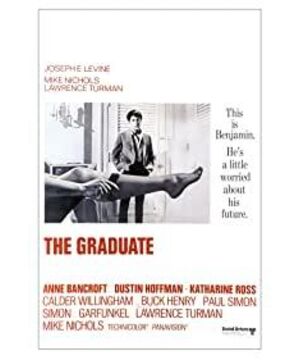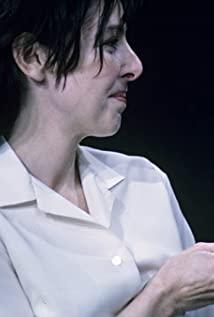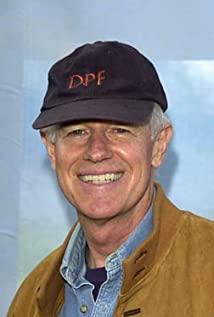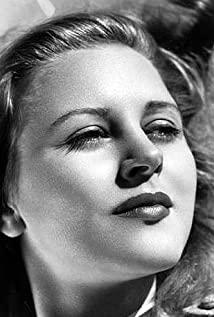Unlike Hollywood's traditional character appearance, the appearance of Ben, the protagonist of "The Graduate", is too bland. The first shot is a close-up of his head, and then the camera pulls away to reveal the space of the cabin. This process is actually equivalent to the splicing of two shots, namely Ben's head close-up and a panoramic shot of the cabin, but the director did not do this, but used a pull shot. This pull-out shot emphasizes the unity of the space. Ben, like these passengers, is a part of this society, and the process of pulling is both a process of integration. At the same time, the use of this pull-up shot has a visual factor. In a continuous process, the audience has become familiar with Ben's close-up shots and becomes tired, and the visual center begins to shift. The audience's attention began to focus on the other passengers, so Ben's image naturally blended into the panoramic shot of the cabin. This reaches the most fundamental theme of the director, Ben's anxiety about how to integrate into society. This meaning is conveyed through the same expression Ben looks in the cabin at the moment as he does at home.
The second shot is of Ben taking the airport elevator. It is worth noting that the director consciously stretched the time and space of this shot to 2 times. If you look closely, you will find that this long elevator shot is actually composed of two shots, which is equivalent to Ben being teleported twice on a section of elevator. Next is the delivery of the travel bag.
Whenever Ben is alone, there is always someone to break into his space. Ben's space is very clear, appearing mostly in close-ups or close-ups of the head throughout the film. In the paragraph where Ben goes downstairs to meet the guests, Ben keeps trying to avoid everyone, but everyone else always has to be in Ben's space, or in other words this space isn't Ben's space at all. In addition, most of the shots in the film were shot with wide-angle lenses, which greatly expanded the space. In this film, many scenes are in the room, and the use of wide-angle lens is conducive to depicting the spatial relationship between the characters. In the scene where Ben meets Mrs. Lu at the hotel, the wide-angle shot expands the depth of the hotel corridor, and the hotel lobby also has
front and rear problems. From the very beginning of the film, the screen in front of Ben was constantly blocked by someone. Due to the use of the wide-angle lens, the person in front is basically in a blurred state. This blurry shadow, facing away from the camera, sometimes even completely blocks the protagonist's picture. For example, when Ben's mother urged Ben to go downstairs, it completely blocked the picture. This behavior has two effects, one is to fade the significant movement of the camera. The other is to create a persistent impression that Ben has always had a block in front of him. In addition, in order to show the relationship between Ben and Mrs. Lu in the film, the film uses a wide-angle lens to a large extent to intentionally separate the two. In the paragraph where Mrs. Lu brought Ben home and seduced him, when Ben found out Mrs. Lu's intention, he tried to distance the two of them. Ben is now standing in the foreground of the lens, a blurred image due to backlighting. The wide-angle lens greatly exaggerated the distance between the two, showing that Ben was still hesitant to seduce Mrs. Lu at this time. The shot of Ben shot from under Mrs. Lu's thigh also greatly exaggerated Mrs. Lu's thigh due to the wide-angle effect, to clearly show the sexual temptation and Mrs. Lu's absolute dominance in the process of temptation. It's also worth noting that in these shots where Ben fails to escape Mrs. Lu's temptation, Ben loses his ability to appear independently in the shot, all of which are framed in a diagonal fashion. Mrs. Lu became the central point of vision.
The most intriguing part of the film is a montage of spatial transformations, where Ben gets up from the swimming pool at home and walks into a room that turns into a hotel room where he and Mrs Lu are dating. This happened many times in a row to show that the relationship between him and Mrs. Lu had been maintained for a long time. Space and time are interdependent, and the performance of time must be carried by space. This montage shot uses space to express time. In addition, the frequency of the swimming pool in Ben's house as a space is very high. When Ben can't fit in and has nothing to do every day, he'll be floating in the pool. In disguise, the swimming pool becomes Ben's refuge from society.
In a scene where Ben goes to Mrs. Lu's house to pick Nin out to play, there are two more lengthy shots of Mrs. Lu's face. The first shot was a subjective shot of Ben entering the door after the doorbell rang. This shot stayed on Mrs. Lu's face until Ben stood in front of him. The whole face goes from a distant view all the way to a close-up. Here I think of the flag paragraph at the beginning of "General Patton". This shot was to show Mrs. Lu's anger, but it couldn't make her really angry. This shot made Mrs. Lu's face bigger and her expression changed from unclear to clear. Makes her expression finally very clearly shown in front of us. When Ben picks up Nin, the camera stops on Mrs. Lu's face until it merges into Nin and Ben. Mrs. Lu had no choice but to watch the two people leave and express the expression through editing. When Nin learns that the woman who was messing with Ben turned out to be his mother, he kicks Ben out of the room. That's when we see her mother leaning outside the door, saying goodbye to Ben. Then the camera suddenly pulled out, and we realized that Ben and Mrs. Lu were actually very far away. Here, the camera is pulled to express a kind of ending, in fact, there is also a feeling of epiphany.
The spatial expression of sound has been ignored by people. In fact, as an audio-visual art, film has the same status as image and sound. The space-shaping ability of sound really makes the movie break the spatial limitation of the two-dimensional screen, making the time and space closer to reality. The descriptive ability of sound can fill the insufficiency of image, and also has implicit expression. The application of sound can not only expand the space of the screen, but also change the atmosphere of the environment, have a direct impact on the audience's viewing psychology, and play a good guiding role in the progress of the film's plot and the audience's acceptance. For example, in "Kill Bill", when the protagonist is nailed in a coffin and buried alive in the ground. As the nails on the coffin fall, the light on the picture is actually that the light inside the coffin is getting darker and darker, and the sound is getting clearer and clearer. When the coffin was completely nailed down, the picture was pitch black and there was no image. At this time, the voice becomes the only expressive ability. The atmosphere of the film was not lost because of the disappearance of the picture, but it became more and more tense. The dark images and rapid breathing sounds make the audience feel as if they are locked in a coffin, which has an extremely terrifying effect.
In The Graduate, the voice plays the same role. After Ben and Mr. Mak finished talking, and were about to walk through the living room, we heard a clear voice reading Ben's diary. We know that this voice belongs to Ben's mother, but his mother herself is not in the picture. But we can still feel the proud tone of his mother reading the diary and the cheers of her friends. In this segment of Ben and Mrs. Lu in Nin's room, Ben also tries to get rid of Mrs. Lu's temptation, but even though Ben and Mrs. Lu are not in the same frame, Mrs. Lu's voice still appears in Ben's picture. Mrs. Lu used her voice to lure Ben into her own image.
The most typical passage is the one where Ben is performing diving at a birthday party. Only the sound of Ben's breathing in the wetsuit is present in this passage, and it dominates the entire passage. Ben in the wetsuit, unable to hear everything from the outside world, walked towards the pool at an unsteady pace, and bobbed up and down in the pool. According to the general principles of narration, this paragraph has no direct connection with the narrative backbone, and does not have any effect on the advancement of the plot. This passage is a fundamentally ideographic passage that expresses Ben's confusion about the future and his fear of integrating into society. This is what distinguishes this film from the traditional Hollywood classics. The relationship between the picture and the sound loses the direct connection in this passage. In the image, Ben's parents and parents' friends are encouraging Ben to go into the water, and the sound of Ben's breathing in the wetsuit gives people a strong sense of irritability and unease. For the picture, the disappearance of the sound gives a strong sense of unease and disorientation. That's exactly what Ben felt in the wetsuit. The feature of this film is that the director conveys the feeling of the protagonist to the audience through the picture and sound.
In addition, the film is accustomed to use the same or similar lines as the point of spatial transformation in terms of lines. Ben refused to tell the truth when he was asked by his mother what he would do at home every night, so his mother walked away angrily. When Ben said, "Wait a minute, wait a minute", the scene changed to the scene where Ben said this to Mrs. Lu in the hotel. The transition is very smooth.
WeChat public account: burst movie blmovie
View more about The Graduate reviews











